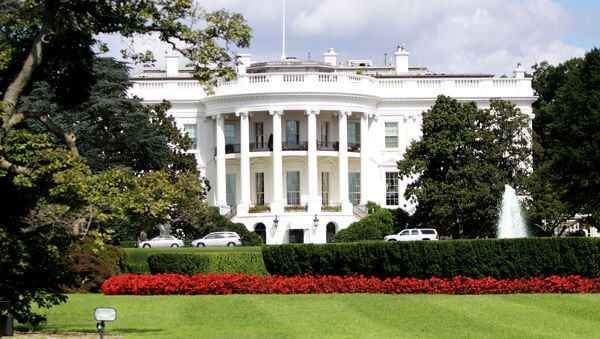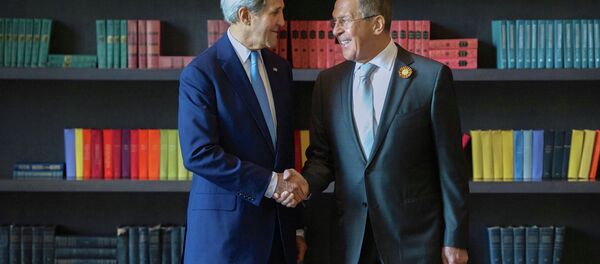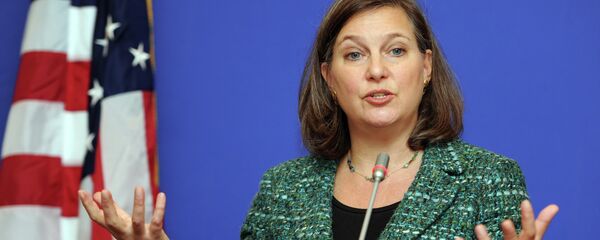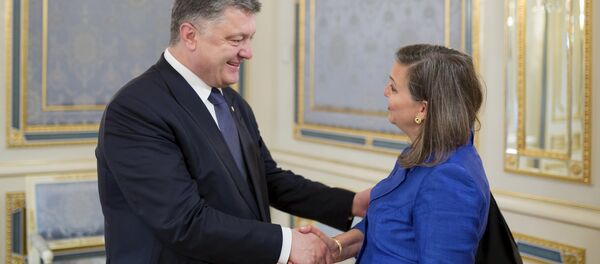US Assistant Secretary of State for European Affairs Victoria Nuland's visit to Moscow "is the latest indicator" that Washington's position on Ukraine and its role in the country's future "may be shifting," the US private intelligence company Stratfor reported.
"Although US officials have been involved in discussions with their Russian and Ukrainian counterparts throughout the conflict, the recent direct high-level negotiations – without the participation of European leaders – signal that Washington wants a larger and more direct role in discussions regarding Ukraine," Stratfor analysts underscored.
Washington's latest initiative was aimed at "inserting the United States directly into the complex negotiations."
Remarkably, the Obama administration has demonstrated that it could shift its stance regarding Russia. In contrast to previous anti-Russia rhetoric, John Kerry and Victoria Nuland evaded the issue of Crimea's status quo or Russia's support for eastern Ukraine, discussing the question of the necessity for the Organization for Security and Co-operation in Europe to have a presence on the Ukrainian border.
Simultaneously, the Kremlin "is likely pushing" the United States to curb its military training activities in former Soviet Republics in Russia's periphery, such as Georgia and the Baltic states. Moscow has also repeatedly expressed its deep concerns regarding NATO's military buildup in Eastern European states, such as Poland and Romania.
"The United States probably is unwilling to compromise on its military training mission to Ukraine, but the US administration could, as it has thus far, avoid providing Ukraine with weapons that add to the country's military capabilities," Stratfor analysts noted.
If Washington decides to abolish its sanctions policy, the lifting of US sanctions will "take place piecemeal, beginning with lighter sanctions such as travel bans on individuals," Stratfor analysts elaborated.
"The latest flurry of meetings likely does not herald an end to the crisis. However, greater direct US involvement in the negotiations could change the dynamics of the talks," the analysts suggested.
On the other hand, the Obama administration's initiative has clearly indicated that Washington's "attempts to isolate Russia have failed," as Russian Foreign Minister Sergei Lavrov noted.
Meanwhile, Moscow and Washington have signaled that they both support the full implementation of the Minsk II accord aimed at reconciliation between Kiev and the Donbass region.




